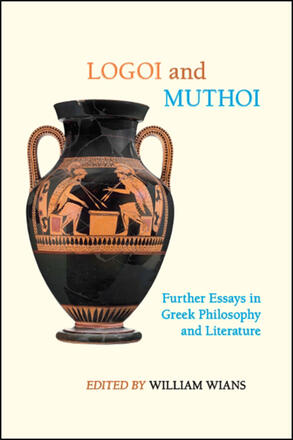
Logoi and Muthoi
Further Essays in Greek Philosophy and Literature
Alternative formats available from:
Essays on Greek philosophy and literature from Homer and Hesiod to Aristotle.
Description
In Logoi and Muthoi, William Wians builds on his earlier volume Logos and Muthos, highlighting the richness and complexity of these terms that were once set firmly in opposition to one another as reason versus myth or rationality versus irrationality. It was once common to think of intellectual history representing a straightforward progression from mythology to rationality. These volumes, however, demonstrate the value of taking the two together, opening up and analyzing a range of interactions, reactions, tensions, and ambiguities arising between literary and philosophical forms of discourse, including philosophical themes in works not ordinarily considered in the canon of Greek philosophical texts. This new volume considers such topics as the pre-philosophical origins of Anaximander's calendar, the philosophical significance of public performance and claims of poetic inspiration, and the complex role of mythic figures (including perhaps Socrates) in Plato. Taken together, the essays offer new approaches to familiar texts and open up new possibilities for understanding the roles and relationships between muthos and logos in ancient Greek thought.
William Wians is Professor of Philosophy at Merrimack College. His books include Logos and Muthos: Philosophical Essays in Greek Literature, also published by SUNY Press, and Reading Aristotle: Argument and Exposition (coedited with Ron Polansky).
Reviews
"…this interesting book brings together works that address, from very present-day perspectives, various aspects of the complex relations between muthos and logos; and shed light on areas of confluence and differentiation between these two essential manifestations of Greek culture, manifestations that are more complex than some reductionist proposals would allow." — Aestimatio
"…Logoi and Muthoi is to be welcomed as a worthy and important sequel." — Bryn Mawr Classical Review
"Rich with anthropological, political, and religious context, these … essays reset the philosophical cornerstones laid by Plato." — CHOICE
"This is a stellar effort. The essays are all of extremely high quality and interest. The scholarship is rigorous and the content is innovative. The conception of the book is highly original, well-grounded, and well-thought-out. William Wians's work as a scholar and as an editor has been consistently first-rate, and with this volume he has surpassed himself." — Rose M. Cherubin, George Mason University